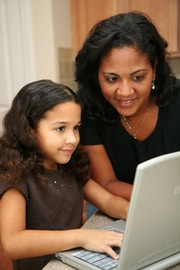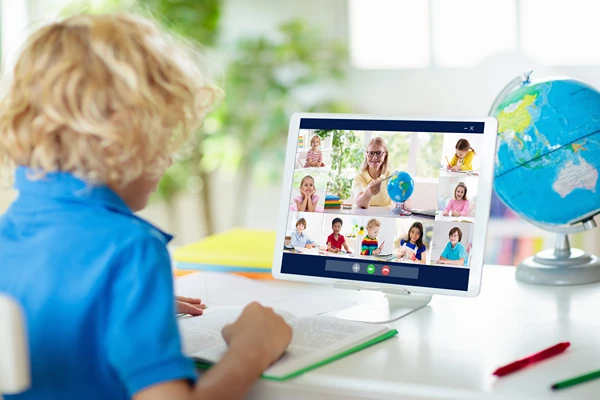Teaching Kids to Mitigate Online Burnout
The risk of burnout is one of the primary threats of contemporary life. But it’s important to remember this isn’t an issue strictly limited to those of us of adult age. Kids are just as susceptible to the damaging effects of the stresses and expectations they’re faced with. Among the contributors to burnout for kids in this way is their online behavior.
While the internet can be a positive tool, it is also one of the ways children are subjected to pressures and anxiety. While it is certainly a virtual environment, the threat is no less real. Indeed, with the prevalence of smart devices and online learning, your kids may find it somewhat inescapable, leaving them at greater risk of burnout.
Let’s take a look at how you can effectively teach your kids to mitigate the potential for online burnout.
Boundary Setting
One of the most important areas of knowledge you can pass onto kids regarding online burnout surrounds setting boundaries. Teach them about the various types of limits they should be setting for themselves throughout their online use. This can begin with something as simple as overall screen time. But it could also include keeping devices away from the bedroom at night so they’re not connected right up until bedtime. This helps to ensure good quality and quantity of sleep.
Another boundary can surround the safe use of social media platforms or online communities. This isn’t just about time spent on them. It’s also about the kind of content being consumed and the discussions they engage in. Peer pressure, trolling exposure, and even pop-cultural disagreements can get heated and stressful. Teach them to recognize the boundaries and when to separate from the negative influences.
Alongside recognizing and setting the boundaries, you should teach your kids how to respond to them effectively. It can be healthy to encourage a digital detox when social media use is becoming problematic in particular. Help them to make accurate assessments about how long this detox should be depending on the severity of the impact on their lives. This could be blocking social sites for a couple of hours each day, or even separating entirely for 24 hours.
Symptom Awareness
Burnout can sneak up and take the victim unawares. A key to mitigating burnout can be recognizing the symptoms early enough to make adjustments. By teaching your child what these are, you can work together to identify them before they get out of hand.
Some of the key signs of online burnout in kids include:
● Slipping Grades
This can be especially prevalent when your child is experiencing the stress of remote learning. The relentless nature of performing their schooling online without casual interactions with their peers can make the situation especially difficult. When your child is unable to disconnect from this environment and struggles to cope with the stress, their schoolwork can start to suffer.
It’s important to encourage your child to speak up when they find their grades are slipping or they don’t enjoy the work as much as they would have in person. This allows you to make adjustments to their learning space or routine to better suit your child’s remote learning needs.
● Isolating Behavior
It is not unusual for children to withdraw from the family space, particularly as they approach pre-teen years. But refusing to engage with family and friends can be a sign your child is experiencing online burnout. This is because the stress they’re living with is driving them to reduce the stimulus they’re exposed to in other areas of their life.
Talk to your child about recognizing when they feel they don’t want to spend time with other people in ways they would have otherwise enjoyed. Help them to see that feeling they’re too tired or too busy for social interactions can be a sign they’re burning out.
● Anxiety
Online burnout creates a situation in which it becomes harder for your child to function comfortably each day. Sure, they may always have had challenges in their lives. But the constant stress and negative influences of their online spaces can result in them experiencing fear. Even their self-consciousness around their online presence or remote schoolwork may be more pronounced. As such, they can find themselves more emotionally distraught and crying more often. Even their sleep may begin to suffer.
Balance Maintenance
You should stress to your child that reducing and preventing online burnout can be about creating a balance in their life. Simply developing a positive attitude despite the difficulties they face isn’t enough. Rather, it’s about taking action to reduce the negative impact on their lives. With kids, this isn’t always an easy idea to get across, so it’s worth taking a practical and visual approach.
Work with them on a weekly basis to list all the essential online activities for each coming day. This may not be limited to schoolwork alone. A growing number of children are using online methods to stay close to their long-distance parents. This is a vital element to maintaining their wellbeing and forging strong bonds. Knowing clearly what these essential online activities are can help your child feel more in control and less overwhelmed.
You can then list all the non-essential online activities they can engage in. Don’t make them feel as though their gaming time or social media use isn’t important. It may be wise to create separate columns for online activities and offline activities each day. This gives a clear view of how successfully they’re achieving a balance. These columns don’t have to be equal each day. But it can be a good tool to help them recognize when their day is imbalanced to the point they’ll risk burnout.
Conclusion
It is important that you as a parent remain vigilant for when your child is displaying signs of online burnout. However, it can be more empowering for your child if you teach them about mitigating the risks themselves too. Talk them through the importance of setting boundaries and recognizing the symptoms of burnout. This, alongside activities to maintain a healthy balance, can help make sure your child approaches their online time in a healthy manner.








